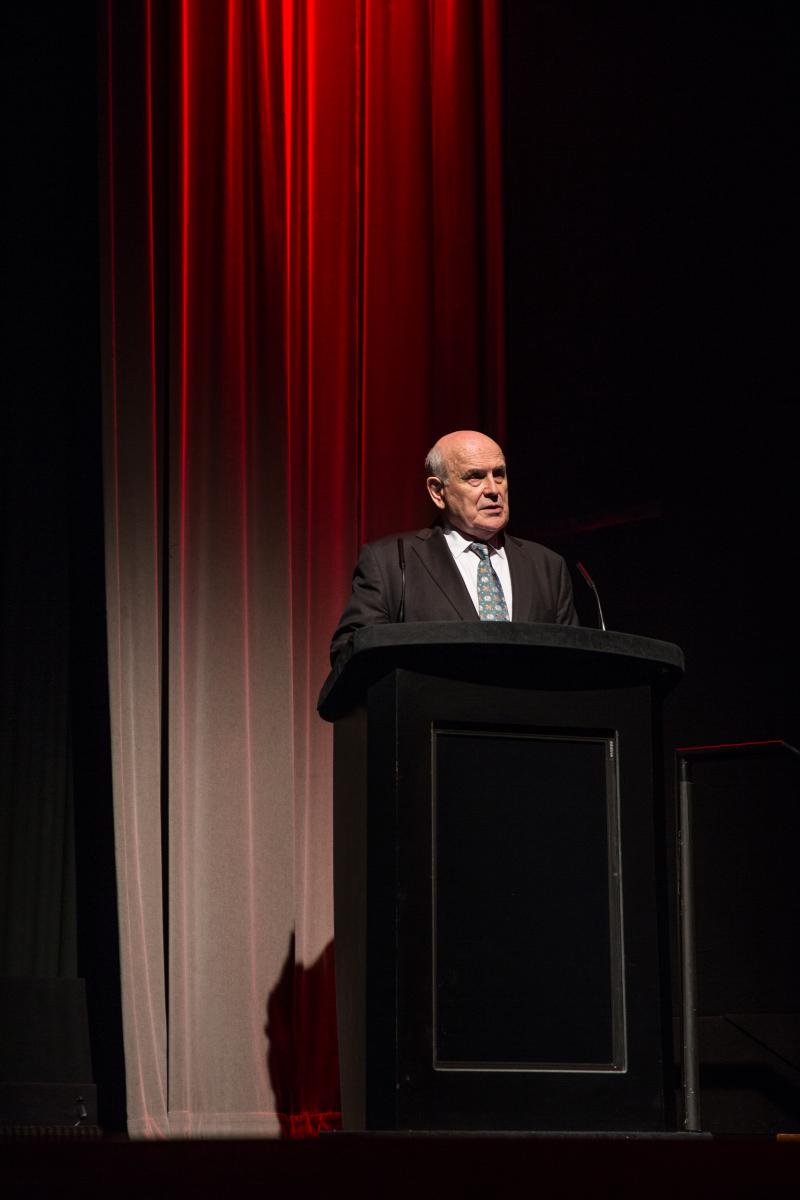Kurdistan was erased from the world's maps after World War I when the victorious powers drew up the borders of the modern Middle East, denying the Kurds a nation-state despite being the region’s largest ethnic group. More than twenty million Kurds live in parts of Iran, Iraq, Turkey and Syria. Throughout the 20th century their struggles for political and cultural autonomy were opposed by all four states and the Kurds were often used as pawns in regional politics. The Kurds' plight most recently captured the world's attention in 2014 during the ISIS’s genocide against the Yazidis when almost 10,000 members of the ethnic and religious minority were killed or captured. Still, Kurdish history remains largely undocumented, and therefore, unknown on a larger scale.
On the 31st anniversary of the Anfal genocide campaign during which the Iraqi regime killed about about 182,000 people, the European launch of the Kurdistan Memory Programme (KMP) was held at the British Academy of Film and Television Arts (Bafta) in London.
The KMP aims to document and present an enduring, historically accurate record of the Kurdish experience “in sound and living colour, definitively documenting the unique voices of Kurdistan for future generations,” as they explain on their website.
"National tragedy has changed life in Kurdistan irrevocably, defining the history of the region. The KMP is preserving this heritage by producing a world class multimedia record, so that young and older Kurds can more deeply understand how their lives have been shaped by the events of the past.”

The KMP website is a vast and historically valuable trove of Kurdish history that puts names to faces of victims, raising the sounds of their moral voices which have too often gone unheard. Through over 1000 invaluable oral history interviews and 400 video testimonies collected over the past 10 years from people who have survived the terrifying experiences of executions, gas attacks, deportation, flight and imprisonment, the KMP hope to illuminate the enormity of the crimes committed against the Kurdish people and the universal lessons that emerge from the catastrophic ramifications of prejudice and hatred which still occur today, thus igniting the urgent debate on the future of the Kurds.
“Perhaps the biggest lesson we learned is that the Kurdish story has not just been ignored for 40 years. In fact, we learned Kurdish history and culture have been routinely denied, suppressed and erased for a period lasting more than 500 years.We found that true Kurdish history is rarely recognised.” said Gwynne Roberts, International Director of the KMP.
“In 1981, I went behind the lines of the Iran-Iraq war to report the injustices suffered by the Kurds. The New York Times, that previously published all my articles on the Kurdish uprising in the mid-seventies, was not interested in my coverage now that the Kurds were no longer allies of America. Nevertheless, in the years that followed, I made it my mission to make the world aware of the truth of historical events in Kurdistan. This commitment continues to this day for the Kurdistan Memory Programme,” explained the journalist-turned-filmmaker who’s been recording tan documenting violence against the Kurds and the region’s major conflicts for over 30 years.
During the launch of the KMP, the documentary film “One Yazidi Family vs ISIS” directed and produced by Roberts was screened for the first time in the UK. In 2014, an ISIS massacre of unimaginable proportions took place during the rapid invasion of the Yazidi people in Sinjar, Northern Iraq. More than 3,000 people were murdered, with almost half executed by gunshot, beheading or being burned alive, while the rest died from starvation, dehydration or injuries during the ISIS siege on Mount Sinjar. Scores of young Yazidi women were enslaved, tortured and systematically raped. The heart-rending film follows the tragic story of the courageous Chatto family during their desperate plight, which is emblematic of the persecution faced by Yazidis under ISIS.
“We really want to reach a wider audience as possible, but the problem with the film in a way, that it’s extremely painful to see. But I do think that’s important, that the wider community sees this, and have some understanding of what these people have been through, not only Ezidis but also the survivors of Anfal,” Gwynne Roberts said after the screening.
“I just hope by showing this film, people in and outside of Kurdistan will have deeper appreciation and sympathy for their experience,” he added.
The Kurdistan Regional Government UK High Representative, Karwan Jamal Tahir, said: “The people of Kurdistan require Justice and genocide recognition of all crimes committed against our nation, we have seen no justice as yet for the victims and survivors, despite many efforts made internally and internationally.”
“After all that oppression, they couldn't deny the fact that Kurdish nation exists and here we are that today, we screen our story to you and the world at the most prestigious place in this fantastic capital,” he added.








